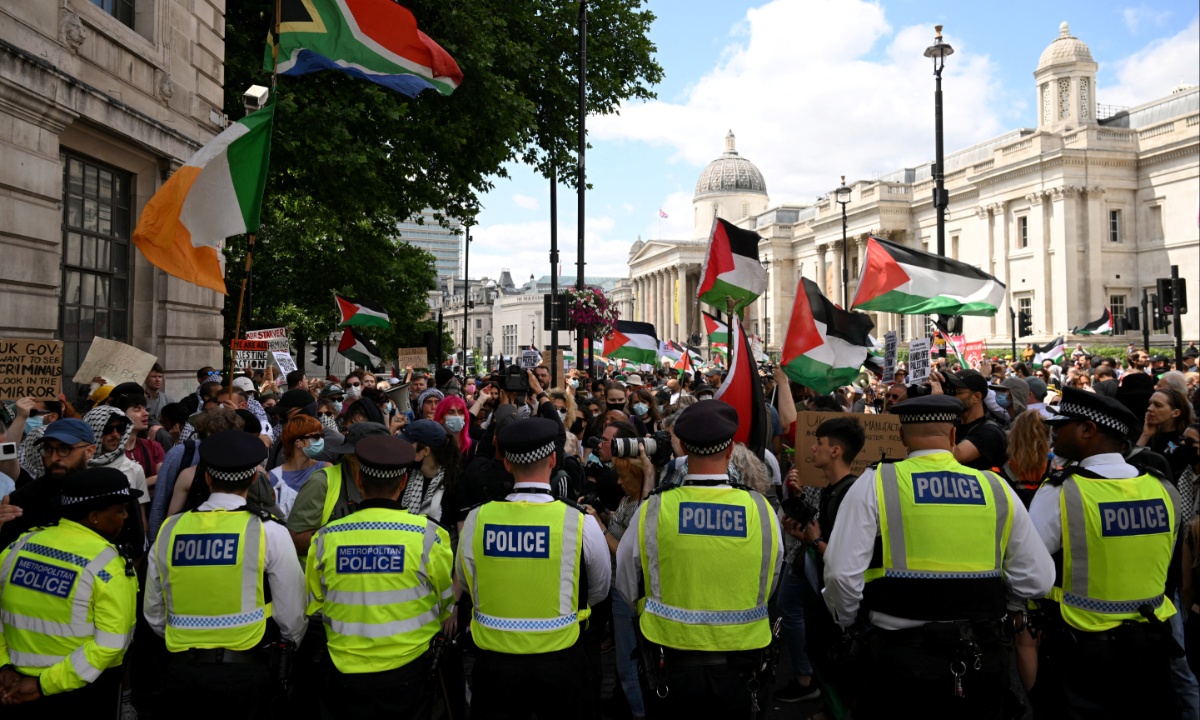Home Secretary Yvette Cooper defended the UK government’s decision to proscribe Palestine Action after more than 500 people were arrested during a protest outside Parliament. The group was banned under terrorism legislation last month, making membership or support a criminal offence punishable by up to 14 years in prison.
This followed claims by Palestine Action of causing £7 million in damage to RAF Brize Norton jets. Cooper stressed the organisation was “not non-violent” and had been linked to violent attacks and significant criminal damage against national security infrastructure.
Government Defends Palestine Action Ban Amid Criticism Over Free Speech And Security Concerns
Cooper stated that many critics of the ban might not know the full extent of Palestine Action’s activities due to ongoing legal restrictions on reporting. The Prime Minister’s spokesman confirmed the proscription was based on strong security advice from the Joint Terrorism Analysis Centre, which attributed three separate terrorism acts to the group. Officials emphasised that the police acted impartially in making the 532 arrests during the protest.
Amnesty International’s chief executive, Sacha Deshmukh, condemned the arrests as “deeply concerning” and an example of overly broad UK terrorism laws threatening freedom of expression. He argued that the scale of the police response demonstrated the dangers of the legislation. Despite such criticisms, the government has stood firm, maintaining that Palestine Action’s activities constitute a clear threat to public safety and national security.
Prominent Environmentalist’s Arrest Sparks Debate Amid Escalating Gaza Humanitarian And Political Crisis
Among those arrested was Sir Jonathon Porritt, former adviser to King Charles III and ex-director of Friends of the Earth. He defended his actions on BBC Newsnight, calling Palestine Action “the most effective organisation” in exposing what he described as the UK government’s complicity in genocide through arms sales to Israel and refusal to follow International Court of Justice guidance.
Porritt argued that civil disobedience has a “long and honourable” tradition when laws conflict with personal conscience and justice.
The controversy comes amid ongoing international concern over the humanitarian crisis in Gaza. Prime Minister Sir Keir Starmer has warned Israel that the UK will recognise a Palestinian state in September unless significant steps are taken to address the situation. Israel has rejected such moves, accusing critics of rewarding terrorism.
The UN continues to warn of famine in Gaza, while Israel denies starvation claims, blaming aid delivery failures on UN agencies. The conflict follows the Hamas-led attack on Israel on 7 October 2023, which killed about 1,200 people, with Gaza’s health ministry reporting over 61,000 deaths since Israel’s military response began.

Leave a Reply